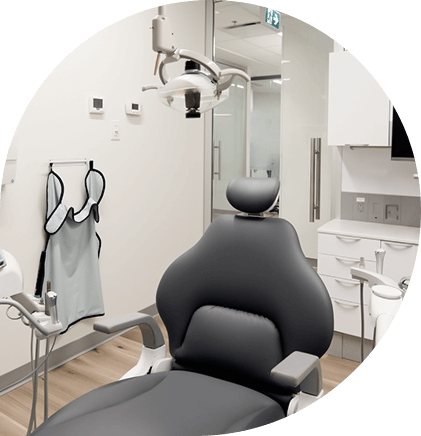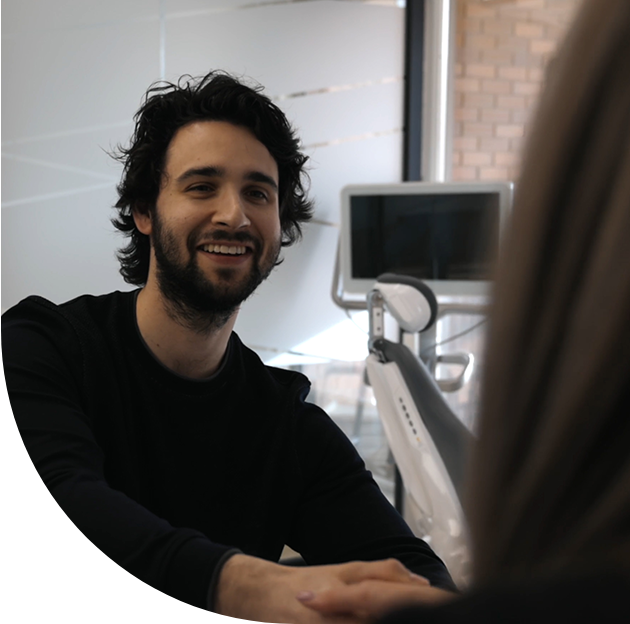Have you ever met someone who says, “I never brush my teeth but no cavities”, while you’re doing everything right—brushing twice a day, flossing, using mouthwash—and still asking, “Why do I get cavities even though I brush?” You’re not alone. At Stringham Dentistry in Edmonton, AB, patients often ask, “Why do some people not get cavities?” and “Why do I always get cavities?” The truth is, cavities are not just about brushing habits. Let’s dive into the science, genetics, and lifestyle factors that help explain this frustrating dental mystery.
What Are Cavities?
First, let’s clarify what cavities are. Cavities also known as dental caries are permanent damage to your tooth’s surface caused by decay. They begin when tooth enamel is worn down by acid-producing bacteria in the mouth. Over time, this can create holes or “deep cavities” that worsen if left untreated.
But how do you get cavities in the first place? The process starts with food—especially sugars and starches—mixing with the bacteria naturally present in your mouth. These bacteria produce acids that attack the enamel. If not properly removed through brushing and flossing, the enamel weakens and decay begins.
So… Why Do You Get Cavities?
There are several answers to the question, “Why do I get cavities?” even if you’re diligent about oral hygiene. Here are some common reasons:
- Genetics Matter – Yes, Cavities Can Be Genetic: Many people ask, “Are cavities genetic?” or “Is tooth decay genetic?” Research suggests that yes, cavities and genetics are connected. The shape of your teeth, enamel strength, saliva composition, and even your immune response to bacteria can be inherited. People with deep grooves in their molars or thinner enamel are more prone to cavities—even if they maintain good dental habits.
- Bacterial Composition – The Role of Cavity Bacteria: The presence of certain types of cavity-causing bacteria like Streptococcus mutans in your mouth makes you more vulnerable to decay. So if you’re wondering why do I get so many cavities, it could be due to higher levels of this specific bacteria. Genetics, diet, and oral hygiene habits all impact bacterial colonies in your mouth.
- Saliva – Nature’s Mouthwash: Your saliva helps neutralize acids and wash away food particles. If you have dry mouth—whether from genetics, medications, or stress—you’re at higher risk for cavities. So when someone says, “I never brush my teeth and have no cavities,” they might simply have protective, high-quality saliva that naturally balances their oral ecosystem.
Why Do Some People Never Get Cavities?
You might have a friend who proudly says, “I never had a cavity” or asks “Is it possible to never get cavities?” Surprisingly, yes, it is possible. Some people are simply genetically gifted with:
- Strong, well-mineralized enamel
- Wide-spaced teeth that are easy to clean
- Low levels of cavity-causing bacteria
- Excellent saliva production
Their bodies naturally defend against decay, which explains why some people never get cavities, even with sub-par brushing habits.
Why Do Cavities Keep Coming Back?
Many patients ask, “Why do I keep getting cavities?” or “Can you get cavities in the same tooth twice?” Once a tooth has been restored with a filling, it’s still vulnerable. If the filling wears out, bacteria can invade the edges. So yes, you can get cavities on fillings or even between teeth, which are often missed while brushing.
Common Myths Around Cavities
Let’s break down some frequent misconceptions:
- Mouthwash prevents cavities: While it may reduce bacteria, mouthwash is not a substitute for brushing and flossing, and some mouthwashes with alcohol can cause dry mouth—raising cavity risk.
- I brush every day—why do I get cavities: Brushing technique, diet, and flossing matter just as much. Even with good habits, people with cavity-prone teeth due to genetics may still experience decay.
- Cavities aren’t natural: Some wonder, “Why are cavities not natural?” The truth is, cavities are extremely common in modern diets rich in sugar and processed foods. Our ancestors likely had fewer cavities due to different diets and less refined carbohydrates.
How to Not Get Cavities
Now that we’ve answered “Why do people get cavities?” and “Are some people more susceptible to cavities?” let’s talk about prevention.
- Brush and Floss Properly: Use fluoride toothpaste, and brush for 2 full minutes. Floss daily—especially to prevent cavities between teeth.
- Use Remineralizing Products: Products containing fluoride or nano-hydroxyapatite help strengthen enamel.
- Avoid Sugary & Acidic Foods: Sugar feeds cavity bacteria and acid weakens enamel. Snack smart.
- Stay Hydrated: Prevent dry mouth by drinking water. Avoid alcohol-based mouthwashes, which can dry out your mouth.
- Visit the Dentist Regularly: At Stringham Dentistry in Edmonton, AB, we help detect early signs of decay before they become serious.
Can You Outsmart Your Genes When It Comes to Cavities?
If you’ve ever asked yourself, “Why do I get cavities even though I brush my teeth?” the answer may have more to do with your biology than your brushing technique. Some people seem to escape cavities effortlessly—even saying things like “I never brush my teeth and have no Cavities”—while others struggle with tooth decay despite meticulous oral care.
The good news is that your genetic predisposition doesn’t seal your fate. Whether your risk is tied to inherited traits, bacteria, or everyday habits, cavities can still be managed and even prevented. Gaining a better understanding of what causes cavities in your case is the first step in protecting your teeth for the long run.
Frequently Asked Questions About Cavities
Q: What causes cavities between teeth?
A: Plaque buildup and lack of flossing. These hidden areas are hotspots for bacteria and food particles.
Q: Can you get rid of cavities naturally?
A: You can stop cavities from getting worse by improving diet and hygiene, but only a dentist can repair damage already done.
Q: Can dentures get cavities?
A: No, dentures are artificial and don’t get cavities, but bacteria can still grow on them—so they must be cleaned thoroughly.
Q: Can you get cavities even if you brush and floss?
A: Sadly, yes. Especially if your enamel is weak, your mouth is dry, or you consume a lot of acidic/sugary foods.
Q: How common are cavities in adults?
A: Extremely common. Studies show that over 90% of adults have had at least one cavity in their lifetime. So yes—cavities are common.
Q: Can brushing get rid of cavities?
A: No. Brushing prevents cavities but does not reverse existing decay. Only dental treatment can do that.





